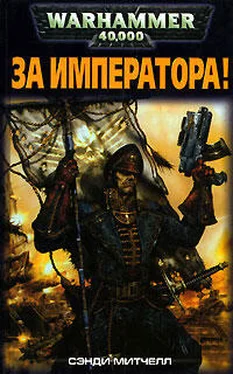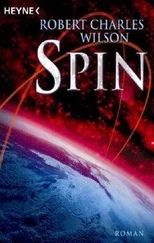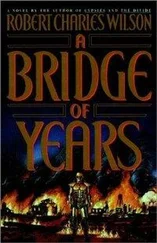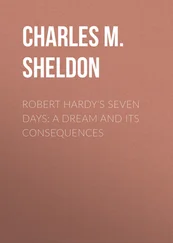* * * * *
The phone rang six months later, when the newspapers were still running banner headlines about "the new world" and the cable channels had begun to carry video footage of a rocky, wild headland "somewhere across the Archway."
By this time hundreds of vessels large and small had made the crossing. Some were big-science expeditions, I.G.Y. and U.N. sanctioned, with American naval escorts and embedded press pools. Some were private charters. Some were fishing trawlers, which came back to port with their holds full of a catch that could pass for cod in a dim light. This was, of course, strictly forbidden, but "arch cod" had infiltrated every major Asian market by the time the ban came down. It proved to be edible and nutritious. Which was, as Jase might have said, a clue: when the fish were subjected to DNA analysis their genome suggested a remote terrestrial ancestry. The new world was not merely hospitable, it seemed to have been stocked with humanity in mind.
"I found Simon," Diane said.
"And?"
"He's living in a trailer park outside Wilmington. He picks up a little money doing household repairs—bikes, toasters, that kind of thing. Otherwise he collects welfare and attends a little Pentecostal church."
"Was he happy to see you?"
"He wouldn't stop apologizing for what happened at the Condon ranch. He said he wanted to make it up to me. He asked if there was anything he could do to make my life easier."
I gripped the phone a little more tightly. "What did you tell him?"
"That I wanted a divorce. He agreed. And he said something else. He said I'd changed, that there was something different about me. He couldn't put his finger on it. But I don't think he liked it."
A whiff of brimstone, perhaps.
"Tyler?" Diane said. "Have I changed that much?"
"Everything changes," I said.
* * * * *
Her next important call came a year later. I was in Montreal, thanks in part to Jason's counterfeit ID, waiting for my immigrant status to be officialized and assisting at an outpatient clinic in Outremont.
Since my last conversation with Diane, the basic dynamics Of the Arch had been worked out. The facts were confounding to anyone who conceived of the Archway as a static machine or a simple "door," but look at it the way Jason had—as a complex, conscious entity capable of perceiving and manipulating events within its domain—and it made more sense.
Two worlds had been connected through the Arch, but only for manned ocean vessels transiting from the south.
Consider what that means. For a breeze, an ocean current, or a migrant bird the Arch was nothing more than a couple of fixed pillars between the Indian Ocean and the Bay of Bengal. They all moved unimpeded around and through the Arch space, as did any ship traveling from north to south.
But cross the equator by ship from the south at ninety degrees east of Greenwich and you'd find yourself looking back at the Arch from an unknown sea under a strange sky, untold light-years from the Earth.
In the city of Madras an ambitious if not quite legal cruise service had produced a series of English-language posters announcing easy travel to friendly planet! Interpol closed the business down—the U.N. was still trying to regulate passage in those days—but the posters had it just about right. How could such things be? Ask the Hypotheticals.
Diane's divorce had been finalized, she told me, but she was out of work and out of prospects. "I thought if I could join you…" She sounded tentative and not at all like a Fourth, or what I imagined a Fourth ought to sound like. "If that would be all right. Frankly I need a little help. Finding a place and, you know, getting settled."
So I arranged a clinic job for her and submitted the immigration paperwork. She joined me in Montreal that autumn.
* * * * *
It was a nuanced courtship, slow, old-fashioned (or semi-Martian, perhaps), during which Diane and I discovered each other in wholly new ways. We were no longer straitjacketed by the Spin nor were we children blindly seeking solace. We fell in love, finally, as adults.
These were the years when the global population topped out at eight billion. Most of that growth had been funneled into the expanding megacities: Shanghai, Jakarta, Manila, coastal China; Lagos, Kinshasa, Nairobi, Maputo; Caracas, La Paz, Tegucigalpa—all the firelit, smog-shrouded warrens of the world. It would have taken a dozen Archways to dent that population growth, but crowding drove a steady wave of emigrants, refugees, and "pioneers," many of them packed into the cargo compartments of illegal vessels and more than a few of them delivered to the shores of Port Magellan already dead or dying.
Port Magellan was the first named settlement in the new world. By now much of that world had been at least crudely mapped, largely by air. Port Magellan was at the eastern tip of a continent some were calling "Equatoria." There was a second and even larger land mass ("Borea") that straddled the northern pole and extended into the temperate zone of the planet. The southern seas were rich with islands and archipelagos.
The climate was benign, the air was fresh, the gravity was 95.5 percent of Earth's. Both continents were bread-baskets-in-waiting. The seas and rivers teemed with fish. The legend circulating in the slums of Douala and Kabul was that you could pick dinner from the giant trees of Equatoria and sleep among their sheltering roots.
You couldn't. Port Magellan was a U.N. enclave policed by soldiers. The shantytowns that had grown up around it were un-governed and unsafe. But functional fishing villages dotted the coastline for hundreds of miles; there were tourist hotels under construction around the lagoons of Reach Bay and Aussie Harbor; and the prospect of free fertile land had driven settlers inland along the White and New Irrawaddi river valleys.
But the most momentous news from the new world that year was the discovery of the second Arch. It was located half a world away from the first, near the southern reaches of the boreal land mass, and beyond it there was yet another new world—this one, according to first reports, a little less inviting; or maybe it was just the rainy season there.
* * * * *
"There must be other people like me," Diane said, five years into the post-Spin era. "I'd like to meet them."
I had given her my copy of the Martian archives, a first-pass translation on a set of memory cards, and she had pored over them with the same intensity she'd once brought to Victorian poetry and New Kingdom tracts.
If Jason's work had been successful, then, yes, there were surely other Fourths on Earth. But announcing their presence would have been a first-class ticket to a federal penitentiary. The Lomax administration had put a national security lid on all things Martian, and Lomax's domestic security agencies had been granted sweeping police powers in the economic crises that followed the end of the Spin.
"Do you ever think about it?" she asked, a little shyly.
Becoming a Fourth myself, she meant. Injecting into my arm a measured dose of clear liquid from one of the vials I kept in a steel safe at the back of our bedroom closet. Of course I'd thought about it. It would have made us more alike.
But did I want that? I was aware of the invisible space, the gap between her Fourthness and my unmodified humanity, but I wasn't afraid of it. Some nights, looking into her solemn eyes, I even treasured it. It was the canyon that defined the bridge, and the bridge we had built was pleasing and strong.
She stroked my hand, her smooth fingers on my textured skin, a subtle reminder that time never stood still, that one day I might need the treatment even if I didn't especially want it.
"Not yet," I said.
"When?"
"When I'm ready."
Читать дальше












